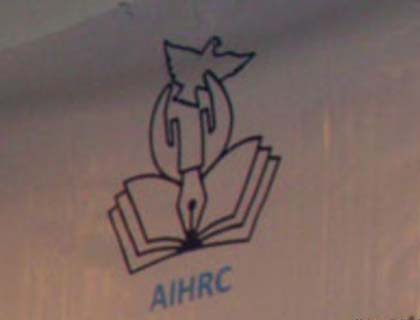KABUL - An influential Human Rights Group on Wednesday called on the Karzai administration to repeal recent amnesty and election laws preventing the Electoral Complaints Commission (EEC) from disqualifying presidential candidates responsible for past atrocities.
Former commanders implicated in serious rights abuses, war crimes and crimes against humanity were among the runners for the April 2014 elections, Human Rights Watch (HRW) alleged, saying the failure to prosecute or disqualify them underscored the importance of accountability.
Brad Adams, Asia director at HRW, said: “Had the Afghan government in the last decade properly addressed crimes of the past, several current candidates would now be disqualified from seeking office – or would even be serving time.” He urged international donors to mount pressure on the Afghan government to ensure future elections were not contested by rights abusers.
Without naming anyone, the group said several warlords, senior politicians and security officials had committed serious human rights abuses during the various armed conflicts that had devastated Afghanistan over the last three decades.
HRW referred to its reports documenting serious abuses from 1984 to 1985, accusing the Afghan government of systematically blocking over the past 13 years inquiries and efforts at accountability for past abuses.
In 2004, it recalled, the Afghanistan Independent Human Rights Commission (AIHRC) completed a survey based on interviews with thousands of Afghans, focusing on citizens’ views on past crimes and what to do about addressing them.
The findings made it clear the vast majority of Afghans wanted past crimes to be confronted: 94 percent said they considered justice for past crimes to be either very important (75.9 percent) or important (18.5 percent).
Under public pressure, the government adopted in 2005 the Peace, Reconciliation and Justice Action Plan, rejecting amnesty for rights violators and outlining steps toward accountability to be achieved over the following years. But since then, the government has instead taken steps to undermine the plan.
“In 2007, parliament ratified an amnesty law sponsored by a coalition of powerful warlords and their supporters to prevent the prosecution of individuals implicated in human rights abuses in the preceding decades,” the organization said.
The law says all those who took part in armed conflict before the formation of the interim administration in Afghanistan in December 2001 shall “enjoy all their legal rights and shall not be prosecuted.”
Earlier in the year, the parliament amended a previous electoral law barring candidates “who command or are members of military organisations or armed groups (unofficial military forces)” and providing for a vetting mechanism to assess which candidates could be disqualified.
In the 2013 electoral law, the prohibition and the vetting mechanism were removed, according to HRW, blaming President Karzai for his personal role in blocking the release of an AIHRC report on maps war crimes and crimes against humanity committed since the communist era.
“For 13 years the Afghan government and its international allies have nurtured commanders implicated in serious crimes, while the leadership blocked efforts to bring justice to the countless victims,” Adams said.
The government was asked to repeal the 2010 amnesty law, reverse the 2013 electoral law change and empower the IEEC to allow complaints to be registered against candidates accused of rights abuses and disqualify those having led militias or military units responsible for abuses.
“Afghan warlords and other human rights abusers who have killed, tortured and robbed civilians have no place in government,” Adams said. “A secure and just future for Afghanistan cannot be built by the same people who savaged it in the past.” (Pajhwok)

